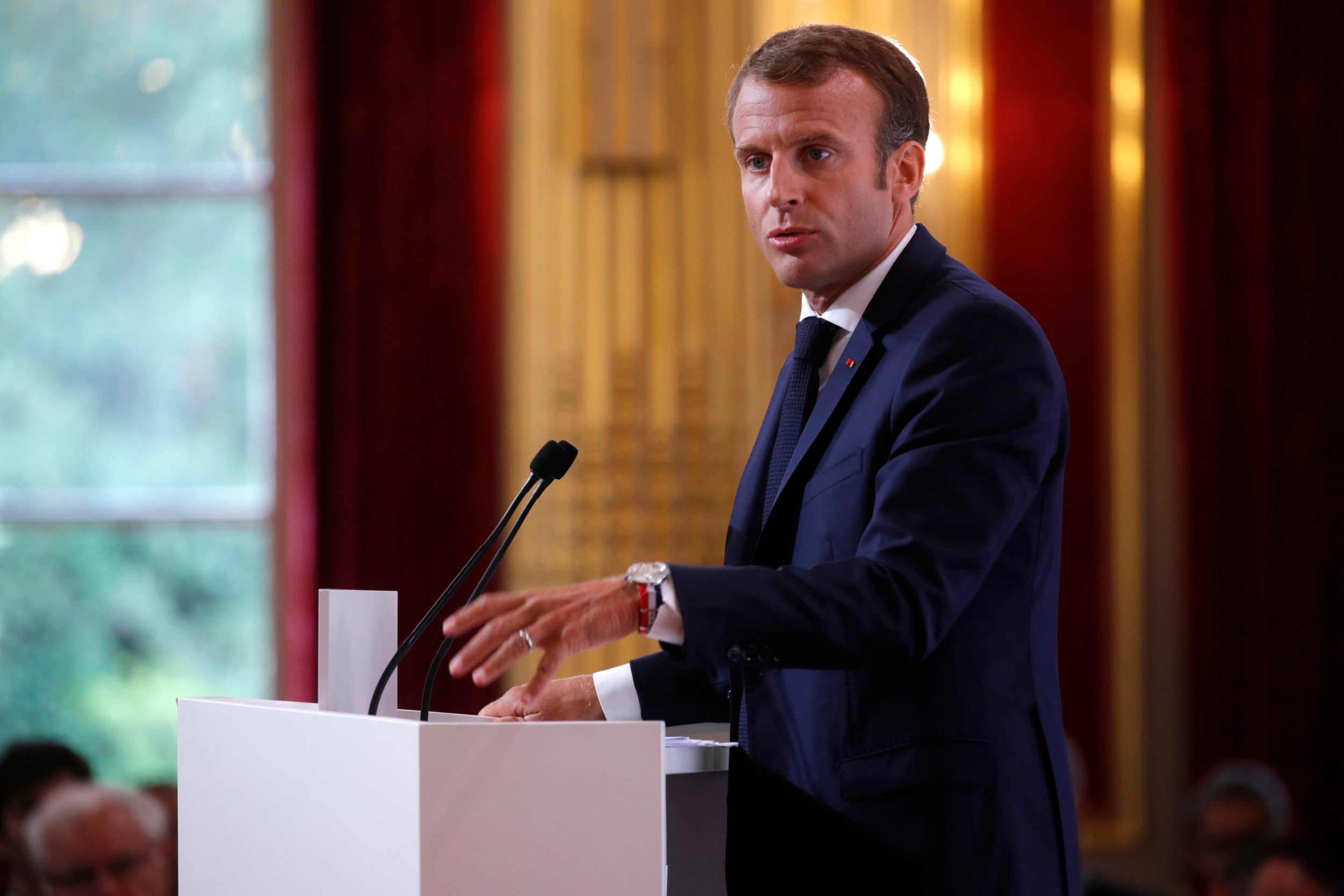Macron’s acknowledgement of France’s history of brutality against Algerians is welcome, but it’s time the perpetrators were held accountable
All would be old age pensioners now, or even dead, but that should not stop suspects from receiving court summonses and jail sentences at extremely advanced ages


France’s murderous persecution of minority communities is a subject that has naturally remained low-key in the postwar republic. Successive governments have, with the compliance of a traditionally toothless media, done their utmost to underplay crimes against civilians.
This is what makes President Emmanuel Macron’s decision to open up the archives on the torture and massacre of mainly Arab Muslims during the Algerian War of Independence such a significant one. Mr Macron has even called for witnesses to come forward, so as to highlight abuses that continue to affect society to this day.
It is 56 years since Algeria, the largest country in Africa and once the jewel in France’s overseas empire, defeated its occupier following eight years of guerrilla fighting against ruthless and hugely well equipped armed forces. Victory in 1962 by no means ended the hostilities, however. There are up to five million people from an Algerian background living in France, and they are still routinely treated with disdain. Discrimination is rife, especially around the dismal council estates where most reside, while opportunities for social advancement are slim.
Algerians now in their seventies and eighties or older remember crimes that took place in the centre of Paris itself. Many of those who protested against France’s dirty war were detained in internment camps used during the Second World War Vichy regime, tortured, and then beaten to death. There were incidents of their corpses being found hanging from trees in parks and suburban woodland. In one notorious onslaught by police in October 1961, up to 300 Algerian civilians were murdered in a single night, many of them drowned in the Seine.
Some responsible for the massacre were affiliated to the OAS (Secret Army Organisation), an anti-independence terrorist group made up of ultra-reactionary army and police officers.
One of many clandestine operations, carried out in between official duties, was the blowing up of a Strasbourg to Paris train in June 1961. A total of 28 were killed, and more than 100 others wounded, including women and children. The OAS also made numerous attempts to assassinate the then French president, Charles de Gaulle, as he moved towards surrendering Algeria back to its own people.
Mr Macron had such horrors in mind when, last Thursday, he became the first French leader to acknowledge that lethal “torture was legally institutionalised” during the conflict, and that France needed to own up to its past.
The torture and murder of Maurice Audin, a communist anti-colonialist who taught mathematics at Algiers University until “disappearing” after a raid on his home by the French Army, was cited by Mr Macron as a prime example of what went on.
But it is crimes against hundreds of thousands of Arab Muslim Algerians that will feature most prominently in the exploration of this terrible legacy.
Mr Macron’s latest declaration follows his visit to Algeria during his presidential election campaign last year, when he referred to France’s 130 years of colonisation as a “crime against humanity”. The head of state later backtracked on such a strong statement, tempering it so as not to offend conservative voters, but his basic position stayed the same.
A sinister “system of arrest and detention” sanctioned by the Paris parliament in the 1950s will now be investigated, said Mr Macron, so that surviving relatives and others can try to establish the truth about the hundreds of thousands of others who “disappeared”. Up to one-and-a-half million Algerians were killed during the war, but acknowledging the circumstances of many of these deaths has remained taboo within the French establishment since 1962.
Little wonder that Jean-Marie Le Pen, the far-right rabble rouser who founded the Front National in 1972 to represent colonialists forced to flee Algeria after the war, has described the new move as “despicable” and an “act of division”. Both Le Pen and his daughter, Marine Le Pen, have been runners-up in presidential elections, giving the strongest indication possible of how important the implications of enforced decolonisation still are to xenophobic French nationalists.
Mr Le Pen, who has himself been accused of carrying out acts of torture while in the army, is a convicted racist and anti-Semite, who was equally opposed to the way France began to recognise World War Two atrocities committed against Jews.
It was in 1995 that the then conservative president Jacques Chirac finally publicly admitted that French police and other authority figures had helped arrest 13,152 Paris Jews in one go. They included more than 4000 children, and all were held at the ‘Vel d’Hiv’ cycling stadium before being entrained to German concentration camps such as Auschwitz.
Mr Chirac said at the time: “Yes, French people, the French state, assisted the occupier in its criminal madness.” Since then, there has been frequent pressure put on the French government to officially accept that killings committed in connection with the Algerian War were equally barbarous.
It is now to be hoped that Mr Macron’s call for transparency will lead to trials, and the criminalisation of some perpetrators. All would be old age pensioners now, or even dead, but this has not stopped suspects accused of collaborating in the Nazi Holocaust receiving court summonses and jail sentences at extremely advanced ages, while war criminals can be judged posthumously too.
It is only through disclosing information about wrongdoings that justice can finally be achieved for the victims and their descendants. With Islamophobia and other forms of racism, especially against immigrants from North Africa, on the rise, and so many people still remaining wilfully ignorant of this dark period of history, President Macron’s initiative has not come a moment too soon.
Bookmark popover
Removed from bookmarks